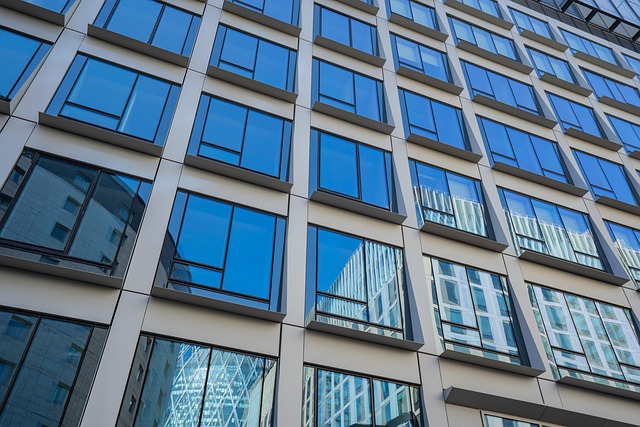In Denver's dynamic property market, understanding Commercial Real Estate Loans (CREL) is key for investors and businesses aiming to thrive. CREL facilitate acquisition or refinancing of income-generating properties like office buildings, retail spaces, and multi-family residences with tailored options from lenders offering competitive rates and flexible terms. To secure a loan, borrowers must demonstrate strong credit history, stable cash flow, and a minimum 25% down payment. The process involves thorough lender evaluation and meticulous application preparation, followed by property assessment and underwriting. Understanding interest rates, repayment plans (fixed or adjustable), and diversifying investment strategies are vital for maximizing returns in this competitive market.
“Unleash the power of income-producing property financing in Denver with this comprehensive guide. Understanding the ins and outs of commercial real estate loans is crucial for investors aiming to navigate the vibrant Denver market. From eligibility criteria to various property types, this article equips readers with essential knowledge. Learn about the loan application process, explore interest rate options, and discover strategies to maximize returns on your investment. Uncover the secrets to successful commercial property investing in Denver through our step-by-step insights.”
- Understanding Commercial Real Estate Loans in Denver
- Eligibility Criteria for Income-Producing Property Financing
- Types of Income-Producing Properties: Unlocking Potential Investment Opportunities
- The Loan Application Process: Step-by-Step Guide for Denver Real Estate Investors
- Interest Rates and Repayment Options: What Every Borrower Should Know
- Maximizing Returns: Strategies for Successful Commercial Property Investing
Understanding Commercial Real Estate Loans in Denver

In the vibrant and bustling city of Denver, navigating the world of commercial real estate loans can seem like a labyrinthine task, but it doesn’t have to be. These specialized financing options play a crucial role in fostering economic growth and enabling businesses to thrive in the region. Commercial real estate loans are designed to support the acquisition or refinancing of income-producing properties, such as office buildings, retail spaces, and multi-family residences. In Denver, where the property market is both dynamic and competitive, understanding these loans is essential for folks looking to invest or expand their business footprint.
Denver’s commercial real estate loan landscape offers a variety of options tailored to different needs. Lenders consider factors like property type, location, rental income potential, and borrower creditworthiness when assessing applications. The process involves careful evaluation, but with the right approach, investors can secure funding to capitalize on Denver’s thriving economy. These loans often come with competitive interest rates and flexible terms, allowing business owners to access the capital needed for significant growth opportunities in this game-changing market.
Eligibility Criteria for Income-Producing Property Financing

When considering a commercial real estate loan in Denver, eligibility criteria are designed to assess both the property and the borrower’s ability to repay. Lenders typically require a strong credit history from borrowers, with a minimum DTI (Debt-to-Income) ratio of 40% or lower being ideal. This ensures that the borrower can comfortably cover their loan payments alongside other financial obligations. For income-producing properties, lenders often look for stable and consistent cash flow to support the loan.
Additionally, lenders may require a down payment of at least 25% of the property’s purchase price. The property itself should be well-maintained and have potential for future growth or a solid track record of generating reliable income. Lenders in Denver will also consider the property’s location, occupancy rates, and the overall health of the local real estate market when evaluating loan applications for commercial properties.
Types of Income-Producing Properties: Unlocking Potential Investment Opportunities

Income-producing properties are a diverse range of real estate assets designed to generate regular cash flow for investors. In Denver, where the market is thriving, various options are available, each presenting unique investment opportunities. One prominent segment is commercial real estate, encompassing offices, retail spaces, and industrial facilities. These properties cater to businesses, offering long-term leases and steady income streams.
Another avenue to explore is multi-family residences, such as apartments or condos, which provide a balance between residential comfort and the potential for significant returns. Additionally, investment in mixed-use developments combines commercial and residential spaces, appealing to a diverse range of tenants and fostering vibrant communities. Denver’s robust economy and growing population make these income-producing properties highly desirable, with opportunities for both established investors and those new to the market, especially when considering a Commercial Real Estate Loan Denver lenders offer.
The Loan Application Process: Step-by-Step Guide for Denver Real Estate Investors

Getting a commercial real estate loan in Denver involves a structured process that requires preparation and attention to detail. Here’s a step-by-step guide for investors navigating this crucial phase.
1. Preparation: Begin by gathering essential documents such as tax returns, bank statements, and business financial projections. These materials demonstrate your financial stability and investment capabilities to lenders. Define your loan purpose clearly – whether it’s for purchasing, rehabilitating, or expanding a property – as this will influence the type of financing options available to you.
2. Lender Selection: Choose a lender specializing in commercial real estate loans in Denver. This could be a traditional bank, a credit union, or an online lender. Research their terms, interest rates, and loan-to-value ratios (LTV). Compare offers to find the most favorable option aligned with your investment strategy.
3. Application Submission: Complete and submit the loan application along with the required supporting documents. Be accurate and thorough in your application to avoid delays. Lenders will assess your financial health, property value, and repayment capacity before making a decision.
4. Property Evaluation: Lenders will order an appraisal to determine the property’s current market value. This step ensures the loan amount is suitable for the property being purchased or financed.
5. Underwriting and Approval: After the evaluation, lenders conduct underwriting, analyzing your application, documents, and property data. They assess risk and decide on loan approval, interest rate, and terms. Upon approval, they will provide a formal commitment letter outlining the agreed-upon loan conditions.
Interest Rates and Repayment Options: What Every Borrower Should Know

When considering a commercial real estate loan in Denver, understanding interest rates and repayment options is paramount for any borrower. Interest rates are a key component that significantly impacts the overall cost of financing. Lenders typically offer various rate structures, including fixed and adjustable rates. A fixed-rate loan provides consistent monthly payments throughout the term, offering borrowers predictability and stability. In contrast, adjustable-rate loans (ARLs) have an initial fixed period followed by periodic adjustments based on market conditions, which can lead to lower initial payments but potential future increases.
Repayment options also vary, catering to different borrower preferences and financial capabilities. Standard repayment plans involve equal monthly installments over a set term, ensuring debt is retired in full. However, some lenders offer accelerated repayment schedules, allowing borrowers to pay down the loan more quickly by making additional principal payments. These options can help reduce interest expenses and the overall cost of borrowing, especially for those looking to manage their commercial real estate investments agressively. Understanding these dynamics is crucial for making informed decisions when securing financing for your Denver commercial property.
Maximizing Returns: Strategies for Successful Commercial Property Investing

Maximizing returns on income-producing properties starts with strategic financing, especially in competitive markets like Denver, where a robust commercial real estate loan market thrives. Investors should focus on securing favorable terms and rates to maximize profit margins. This involves exploring various loan options, such as traditional bank loans, private lending networks, or government-backed programs tailored for commercial real estate investments.
Diversifying investment strategies is another key. Investing in different property types, locations, and tenancies can mitigate risk and enhance returns. For instance, a mix of retail spaces, office buildings, and industrial facilities can provide stability through varied income streams. Additionally, staying informed about market trends, local economies, and demographic shifts helps investors make data-driven decisions, ensuring their commercial real estate loans are invested in properties with strong growth potential.
Understanding the nuances of income-producing property financing, particularly within the Denver market, equips investors with the knowledge to navigate the competitive landscape. By grasping eligibility criteria, exploring diverse property types, and mastering the application process, prospective borrowers can unlock lucrative investment opportunities. Armed with insights on interest rates, repayment options, and strategies for maximizing returns, investors are better prepared to thrive in the dynamic world of commercial real estate loans Denver has to offer.
